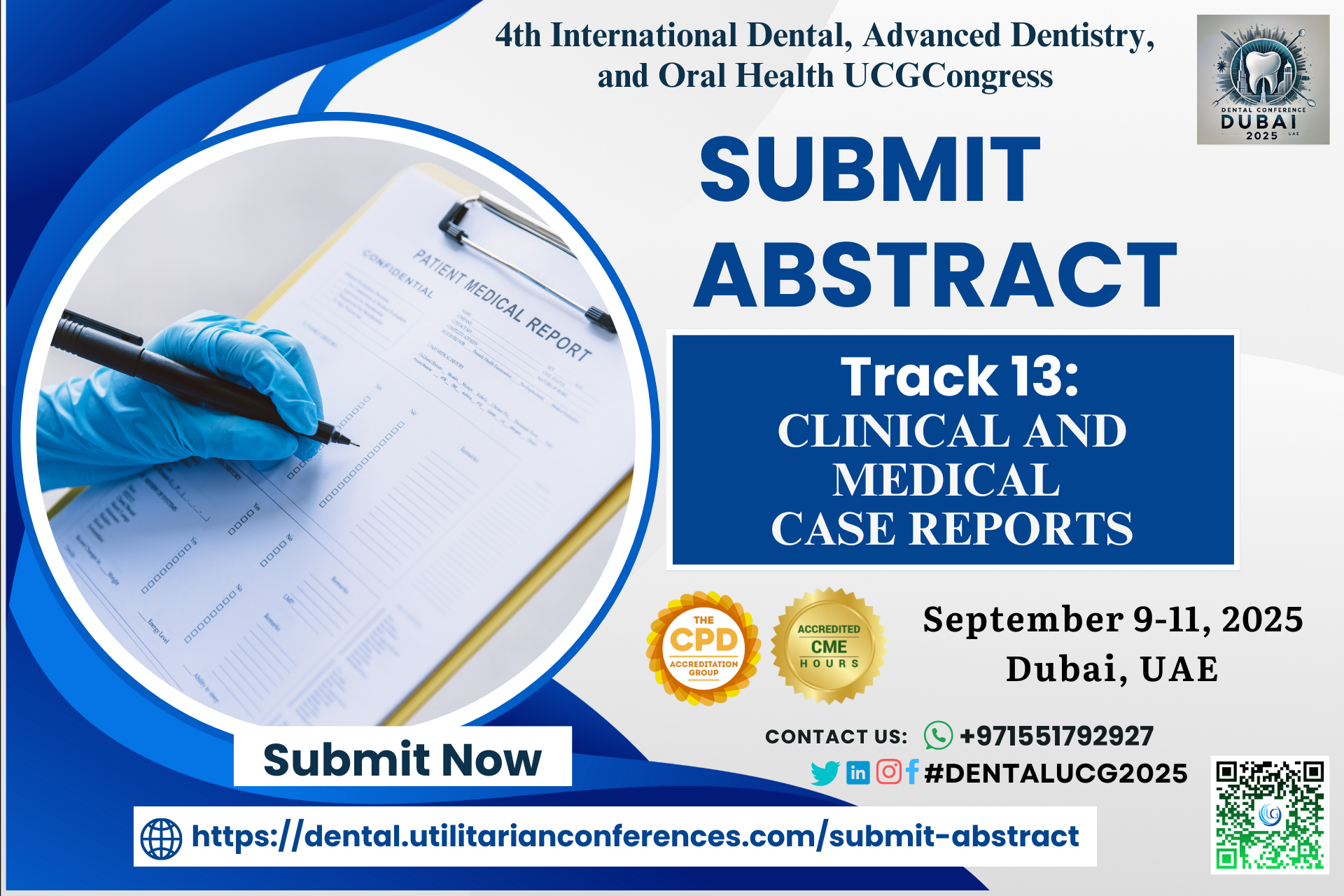





Sub-tracks:
Case Documentation, Diagnostic Challenges, Treatment Outcomes, Rare Conditions, Patient Management Strategies, Surgical Interventions, Long-Term Follow-Up, Multi-Disciplinary Approaches, Comparative Case Studies, Innovative Treatment Methods, Ethical Considerations, Data Analysis and Reporting, Patient Consent and Confidentiality, Literature Reviews, Case Presentation Techniques
What is Clinical and Medical Case Reports:
Clinical and medical case reports document individual patient cases to highlight unique, complex, or rare conditions, treatments, and outcomes. They offer detailed accounts of diagnostic processes, therapeutic interventions, and patient responses, providing valuable insights into medical practice. These reports contribute to medical knowledge by showcasing unusual or noteworthy cases, supporting clinical decision-making, and guiding future research. They often include patient history, clinical findings, treatment strategies, and follow-up results, and are crucial for sharing novel findings, addressing diagnostic challenges, and improving patient care practices within the medical community.
Patient Management Strategies:
Patient management strategies involve systematic approaches to delivering care and ensuring optimal patient outcomes. This includes thorough assessment and diagnosis, developing personalized treatment plans, and setting clear goals. Effective communication and patient education are essential for informed decision-making and adherence to treatment. Strategies also encompass monitoring progress, adjusting plans as needed, and coordinating with other healthcare professionals. Emphasizing patient comfort and support, addressing any concerns or complications, and providing follow-up care are crucial elements. Overall, these strategies aim to enhance patient satisfaction, improve health outcomes, and ensure comprehensive and efficient care delivery.
Multi-Disciplinary Approaches:
Multi-disciplinary approaches involve collaboration among various healthcare professionals to address complex patient needs. This approach integrates expertise from different fields, such as dentistry, medicine, and therapy, to develop comprehensive treatment plans. By combining knowledge and skills from specialists, the team can offer holistic care that addresses all aspects of a patient’s condition. This collaboration ensures a more thorough assessment, more innovative solutions, and improved patient outcomes. It also facilitates better communication among providers and a unified approach to managing and coordinating patient care, ultimately leading to enhanced effectiveness and efficiency in treatment.